Cultural Life Series Event Aligns with JWU Students’ Environmental Advocacy
Author Audrey Soemarno '27 is a Media & Communication major and works as a student assistant at JWU, contributing to JWU News.
I had the pleasure of attending the Cultural Life Series event at Johnson & Wales University where Lorén M. Spears, a respected educator, author and executive director of the Tomaquag Museum, shared her deep knowledge of Indigenous history, culture and storytelling with students. The event, held in Providence, provided an immersive experience that allowed students to engage with the rich traditions and lived experiences of the Narragansett people.
Throughout her talk, Spears emphasized the importance of Indigenous perspectives in understanding American history. She highlighted the resilience of Indigenous communities, stating, "Our history is not just something of the past; it is alive within our language, traditions and daily practices."
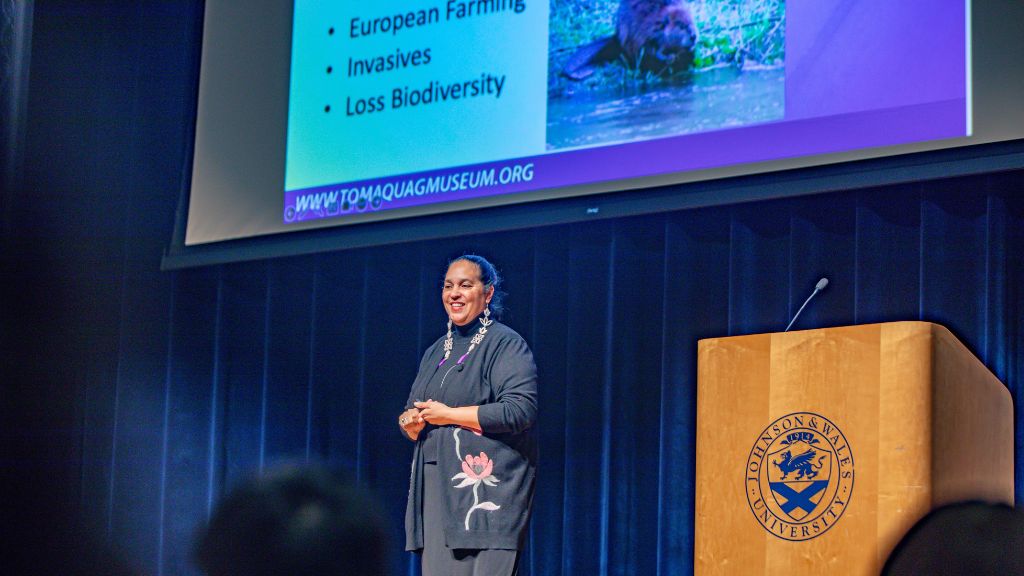
She also underscored the significance of storytelling as a means of preserving and passing down cultural knowledge, noting, "Storytelling is the heart of our traditions. It carries our values, our history and our teachings." Her personal stories, historical perspectives and cultural traditions helped highlight the resilience of the Narragansett people. “Indigenous knowledge is not just about the past; it’s about the future,” Spears explained. “Our traditions and our connection to the land teach us how to live sustainably and in balance with nature.”
The key focus of JWU’s event was environmental administration and deep values that are embedded in Indigenous culture. In her talk, Spears encouraged students to think critically about their relationship with nature and recognize their responsibility in protecting the environment. “The land is not something we own; it’s something we take care of for the next generations,” she stated.
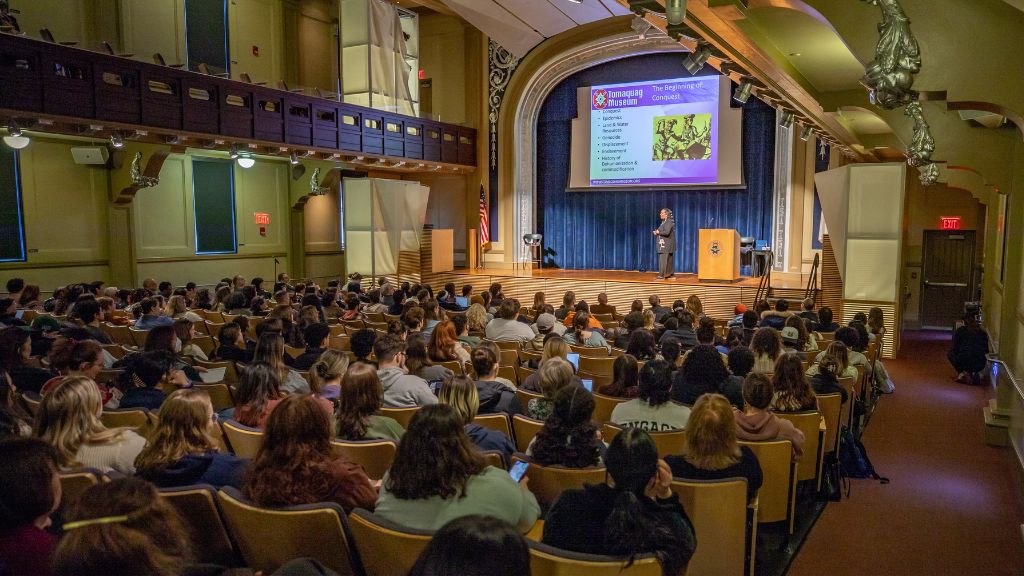
Through storytelling, Spears passed on environmental wisdom of Indigenous communities and emphasized the necessity of respecting the land. She shared insights into sustainable practices and how Indigenous knowledge can contribute to current environmental solutions. "Our ancestors lived in harmony with the land, and we have the responsibility to continue that tradition," she explained, encouraging students to think about their role in environmental practices.
The Cultural Life Series event was an invaluable opportunity for students to gain a deeper understanding of Indigenous history and contemporary issues. Events like these provide an essential educational experience in fostering cultural awareness and respect. They also allow students to learn directly from Indigenous leaders by bridging the gap between academic study and lived experience. The significance of such engagements goes beyond the lecture hall, encouraging students to critically reflect on historical narratives and the impact of Indigenous communities particularly in American society.
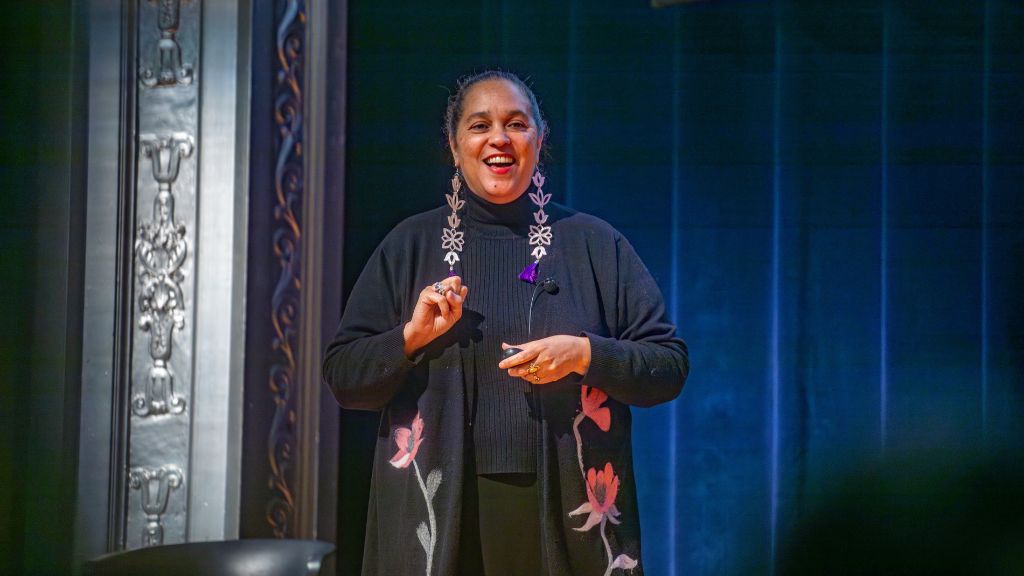
Bringing speakers like Spears to JWU’s campus further emphasizes the importance of cultural education and diversity. This event reinforced the idea that learning about different cultures enriches the perspectives of students and helps create more informed and empathetic citizens and communities. Learn more about Lorén Spears and her environmental justice work through her This Week at JWU Podcast interview.
Student Activists Supporting Sustainability (SASS)
The values and environmental awareness discussed by Lorén Spears align closely with the mission of Student Activists Supporting Sustainability (SASS), a student-led organization at JWU dedicated to promoting sustainability on campus and beyond. Treasurer of SASS Jack Rielly ’26, a Hospitality Management major with a minor in Adventure, Sports and Sustainable Tourism, shared insights into the club’s efforts to give students a way to advocate for the environment on campus.
“I was inspired to join SASS after working with many of the previous board members at JWU ECO (JWU’s Energy Conservation Office). They seemed like such a fun group of people that shared many similar interests as me, so I decided to join,” Jack explained. SASS has recently completed construction on a new greenhouse in the community garden area on JWU’s Harborside Campus and had been able to showcase it at their recent Garden Party on March 28. The following day they will host a hiking event at Ninigret Park encouraging students to engage with nature.
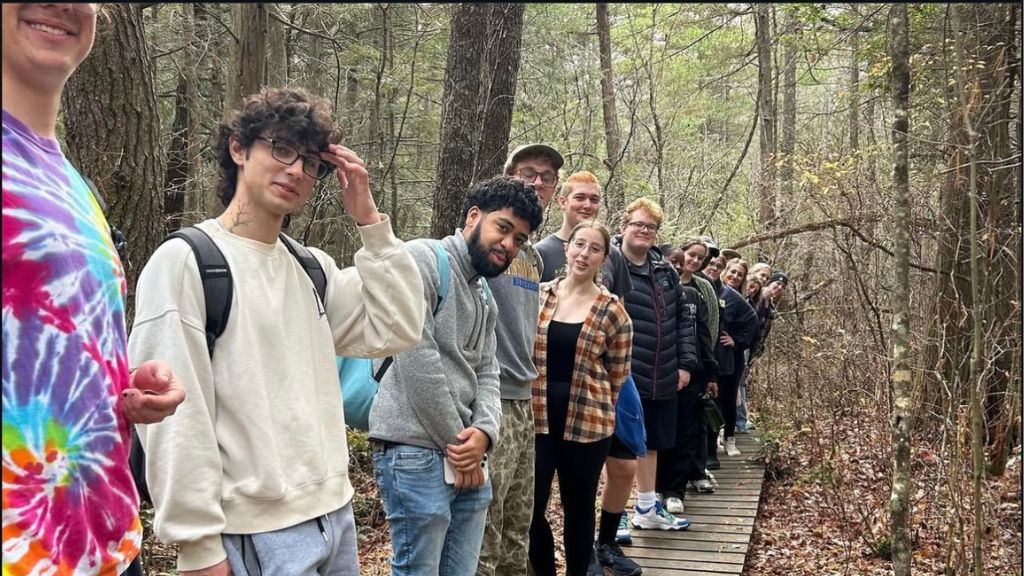
Much like Spears' emphasis on land stewardship, SASS promotes sustainability by encouraging students to form a deeper connection with the environment. “With the continual growth of our community gardens and events such as SASS Hikes, we attempt to help students connect with nature on a deeper level,” Jack said. “We hope that by providing access to green spaces, students will develop the same passion for sustainability that we in SASS have.”
SASS also collaborates with other student organizations through the Green Collaborative, a partnership dedicated to promoting sustainable initiatives on campus. Their efforts in working with the Providence Neighborhood Planting Program to plant trees in low-canopy neighborhoods reflect Spears' teachings on the responsibility of caring for the land. “By planting trees, we help lower temperatures in these areas and reduce energy consumption,” Jack noted, reinforcing the idea that small actions can lead to a significant environmental impact.
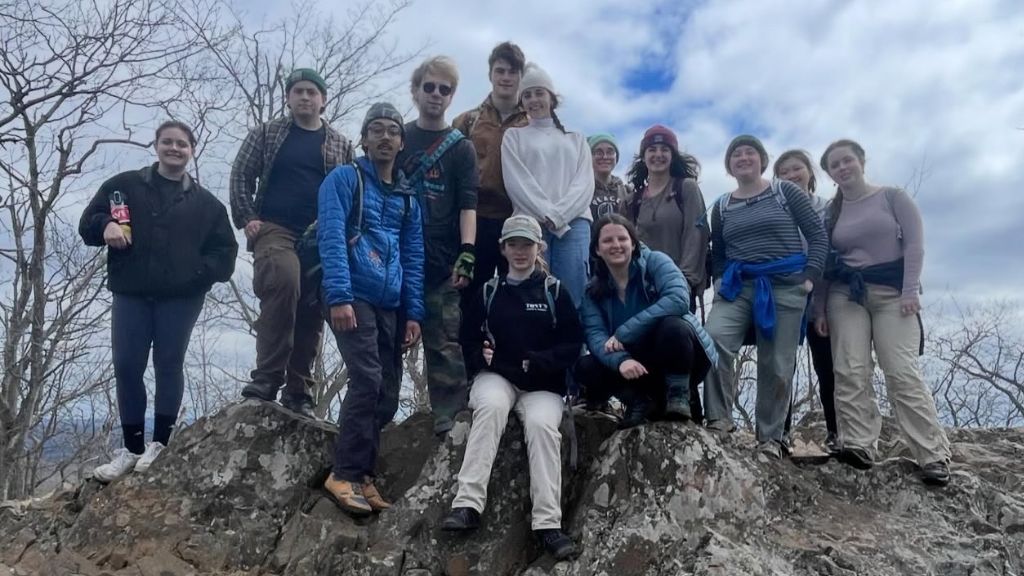
For those interested in getting involved, SASS meets biweekly and shares updates on upcoming events via their Instagram (@jwuprovsass). “It’s easy to make small changes that have a big impact,” Jack shared, reflecting on how SASS has shaped his personal habits. “Even switching to powdered laundry detergent instead of liquid in plastic bottles can make a difference.”
Spears' message about Indigenous traditions and environmental sustainability serves as an inspiration for students to act in their own communities. Whether through learning from Indigenous perspectives or participating in campus initiatives like SASS, JWU continues to provide students with opportunities to learn, engage and contribute to a more sustainable future.